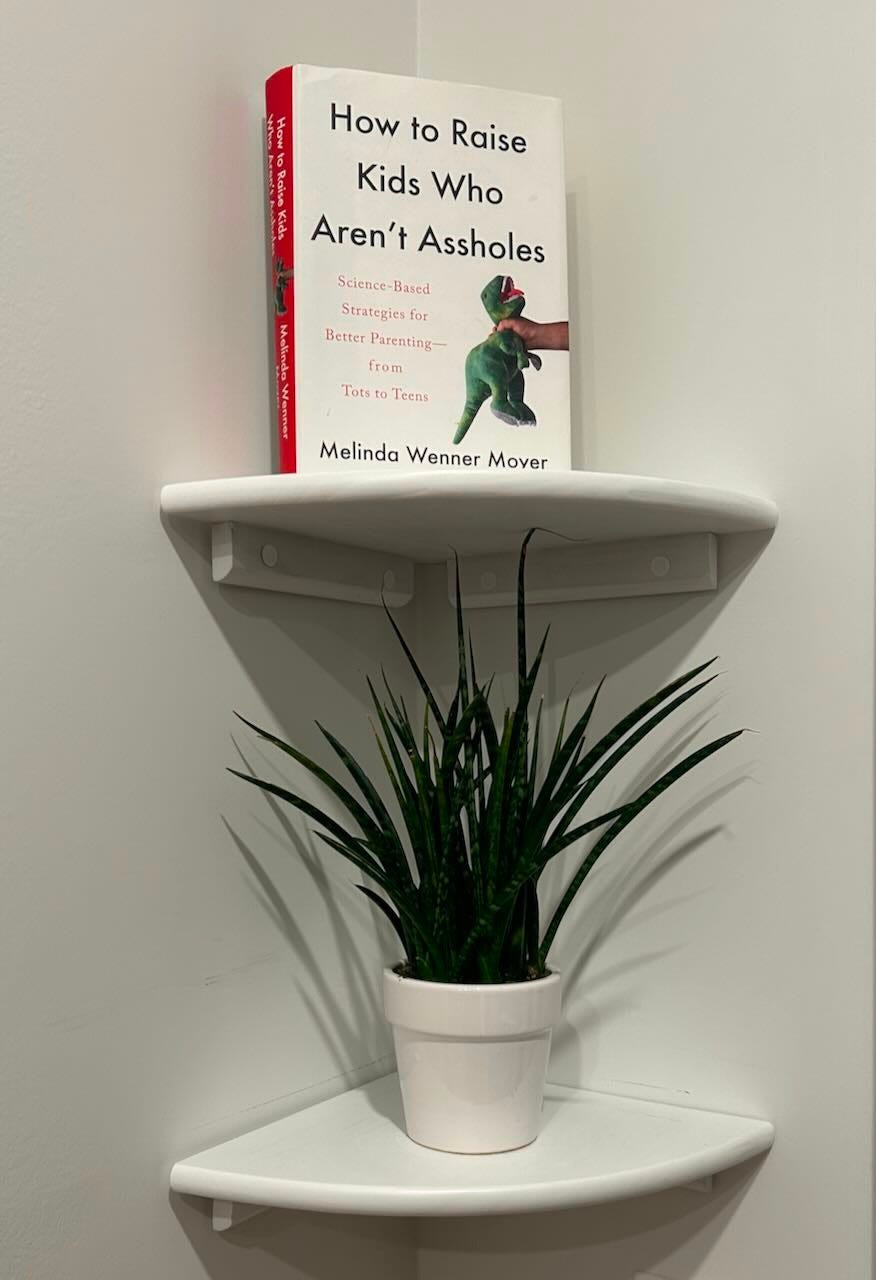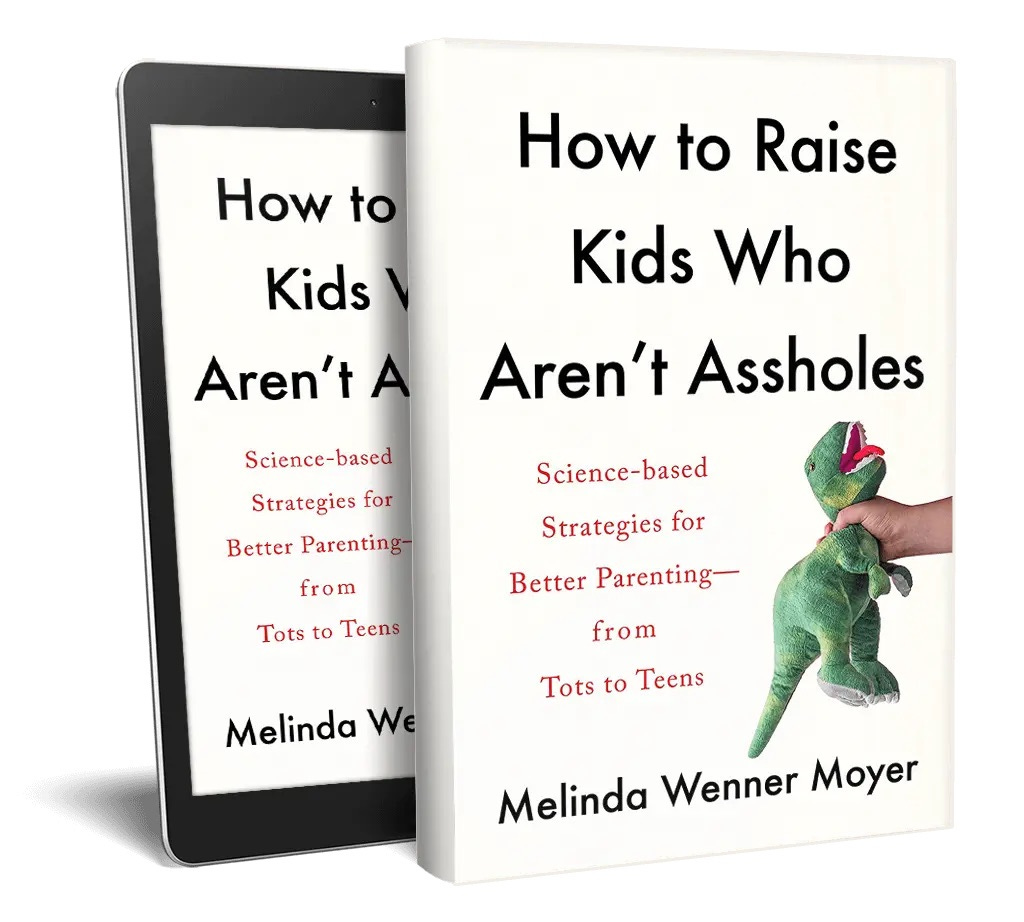About a month ago, I went to Home Depot with my friend
. Since my separation, I’ve slowly grown more comfortable handling house-related issues myself, but I still feel a sense of unease in certain male-dominated spaces, and I welcomed the company. We stopped at the plant section — I have been accumulating more and more house plants because they are the best — and started eyeing a beautiful dracaena.I turned to Virginia, who is very much a plant guru, to ask her advice. “I probably shouldn’t buy plants at Home Depot, right?” I said. “I mean…. I doubt they have been well-cared for. Should I go to Adams, the fancy plant place down the street instead?”
“Oh, no, you should buy your plants at Home Depot,” she said. “Adams coddles their plants, so they are less hardy. These will do better.”
I immediately recognized the relevance of her point to parenting. When we are always present, always giving our kids exactly what they want, they may well be happy — but they aren’t then given opportunities to learn how to handle and respond to challenges.
Botanists have literally seen resilience develop biologically in plants when they are not given exactly what they want. When plants get thirsty, for instance, they often grow their roots deeper in search of water. The hardship of thirst literally causes them to problem-solve. And then, with deeper roots, they are better equipped to handle future droughts as well. They become more resilient.
My best friend drove from out of state to spend the weekend with me last weekend. She has three kids, the youngest of whom is two. At one point, she heard from her husband that her toddler was having a tough time. “I’m with her all the time, and suddenly now I’m not,” she said to me, clearly feeling some guilt. I tried to offer a different perspective: Her daughter is used to her constant presence, and there’s nothing wrong with that — but it could be helpful for her toddler to learn to adapt to other caregivers and to discover that mom’s presence isn’t essential to her wellbeing. (These resilience-building experiences aren’t always the torture we think they are for our kids, either. Some of my fondest childhood memories are times I spent with babysitters while my parents were away.)
This isn’t to say that we can just throw our kids (or our plants!) into extremely challenging conditions and expect them to thrive. When I grow plant seedlings indoors in the winter and spring, I can’t suddenly transplant them outdoors without killing them (I have, sadly, learned this through experience). I need to place the seedlings outdoors for a few minutes the first day, a bit more the second day, and so on, gradually increasing the duration they’re exposed to the cold weather until they have adapted. The hardening off process takes time.
My friend who visited plans to start traveling more, and I couldn’t help but think that this short weekend away from her kids was like the beginning of her kids’ hardening off process. Her toddler is, I’m sure, so happy that she’s back home right now — but she also survived a weekend without her. That experience will help her endure my friend’s future excursions, too.
One thing that’s often missing from conversations about resilience, too, is the fact that the choices parents make that often inspire resilience are also choices that tend to make them happier and healthier parents. When we tell our kids to play outside so that we can sit down and read; when we put our kids in daycare to give ourselves much-needed breaks; when we take trips away to visit with friends — we do these things to fulfill our own wants and needs, and that then makes us better caregivers. It’s a win-win-win: These opportunities build resilience in our kids, make us more patient and present parents, and make us happier human beings.
Right now, I know a lot of you are struggling with what’s going on in the world. So I extra urge you to give yourself the simple pleasures you want — and to remember that what our kids want from us is not always what they need. We should sometimes allow our kids to experience not-so-ideal conditions, just as we should buy the hardy plants that grew up at Home Depot.










I stand by my advice here though I also feel it's important to confess I buy MANY plants from the fancy plant store too. (They are where you have to go for more unusual plants... but a plant that can survive the fast-paced, cutthroat Home Depot environment is for sure the kind of plant we want to raise!)
You can practice this without traveling too, if money is tight. I don’t often travel without the kids unless it’s for work, mostly because there’s no family nearby and sitters are expensive. But I practice ‘leaving them be’ when we’re at home. All of us can read/work/play on our own for long stretches (after practicing since babyhood.) It’s one of our family values that everyone knows how to find something to do on their own sometimes, without screens. It can be messy or loud, but not always, and building capacity for attention and discomfort (resilience) is important to us. Plus, both parents get their own time too, for things like exercise or being with friends. Those breaks are foundational to our family’s capacity for patience and kindness.